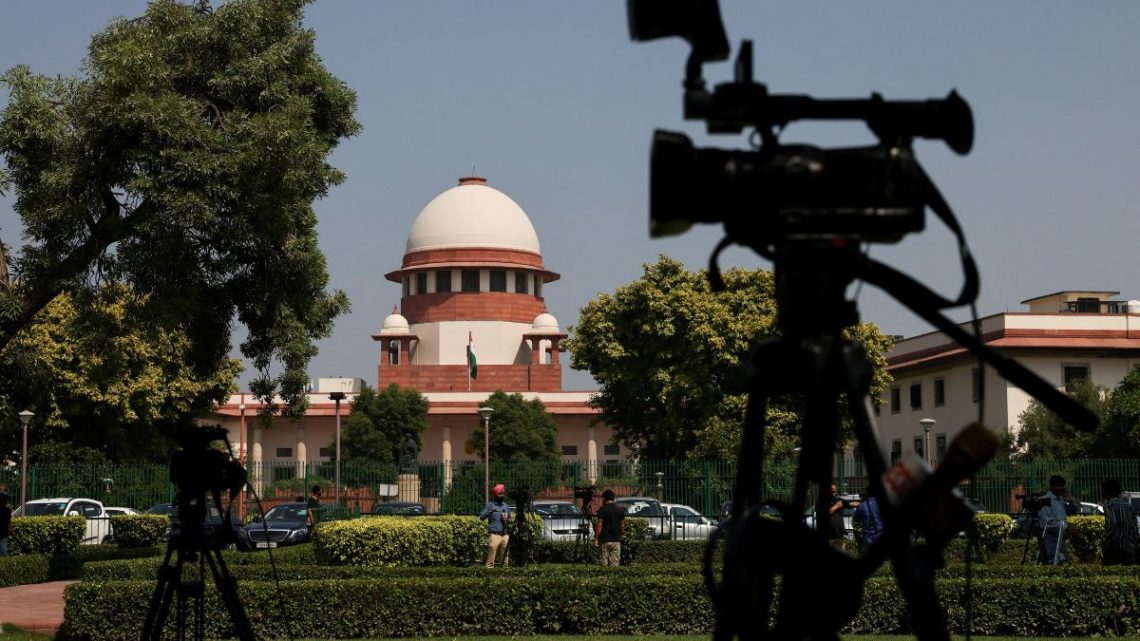The Supreme Court on Thursday ordered civil courts across the country not to register lawsuits challenging the ownership and title of places of worship under the Places of Worship (Special Provisions) Act of 1991.
The move comes after the apex court heard a bunch of petitions challenging the validity of the Places of Worship Act. An order from the CJI-led bench would essentially put a hold on all surveys of temples and mosques.
“We deem it fit to direct that no fresh suits shall be registered or proceedings be ordered. In the pending suits, no effective interim orders or final orders including orders of survey can be granted by civil courts till the next date of hearing,” the SC said.
Temple and mosque surveys have become a contentious issue in India leading to violence and communal tensions, the most recent example being the Sambhal incident. The top court’s order would also stop the surveys of the Gyanvapi mosque in Varanasi and the Shahi Idgah mosque in Mathura.
The petitions were heard by a three-judge bench headed by Chief Justice of India Sanjiv Khanna and Justices Sanjay Kumar and KV Viswanathan.
CJI Khanna also said that no hearing on the matter would take place until the Centre submits its response in four weeks.
The Places of Worship Act of 1991 stipulates that any place of worship will not be subjected to a character change and that its nature shall be maintained as it was on August 15, 1947.
The Act, introduced by the P.V. Narasimha Rao-led Congress government during the peak of the Ram temple movement, was also intended to apply to the contentious Kashi Vishwanath temple-Gyanvapi mosque complex in Varanasi and the Krishna Janmabhoomi temple-Shahi Idgah mosque complex in Mathura.
The law had made only one exception – on the dispute pertaining to the Ram Janmabhoomi-Babri masjid in Ayodhya.
Link to article –
India’s top court hits pause button on temple-mosque surveys under Places of Worship Act



